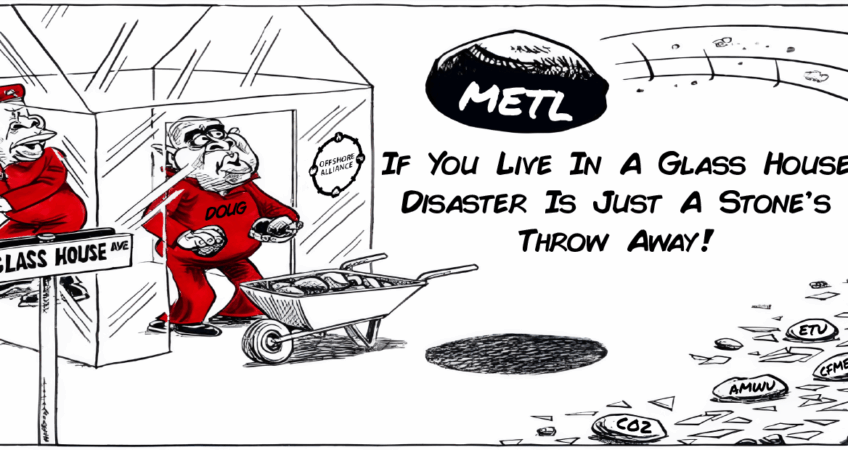The leadership of the Offshore Alliance is quick to attack the AMWU over the 2017 agreements, yet if we turn the clock back another five years, it was the very same Offshore Alliance leadership that was instrumental in stripping nearly $900 per week from construction workers through project-specific agreements – starting with the INPEX project.
The hypocrisy of the Offshore Alliance leader is astounding – continually attacking other unions over the 2017 rates, yet playing a key role in ripping away hard-fought conditions that took years to secure.
Maybe it’s time we dust off the old MUA Offshore Construction Enterprise Agreement – the one before the INPEX project – and remember what union members actually used to get for their dues. Back then, offshore construction workers earned a solid $215 per day Construction Allowance. It was a hard-won entitlement, reflective of the tough conditions, long stints away from home, and high-risk nature of the work. But under the Alliance leadership team, that allowance was slashed to a mere $90 per day – a more than 50% cut.
And it didn’t stop there. Of that reduced allowance, $10 a day was asked of workers to funnel into the Maritime Employees Training Limited (METL) fund – a training initiative that was sold to members as a union-run facility to upskill the workforce with high-risk tickets like Rigging and Dogging. But here’s the catch: METL wasn’t just a training program. It was a labour hire company – and worse, one co-founded by the Offshore Alliance leadership itself.
That’s right. Union members were told METL was for their benefit. Instead, it became the vehicle through which a new tier of cheaper labour was introduced – undermining the very workforce that paid to set it up. MUA members, under the illusion they were supporting a training program to advance their careers, were unknowingly bankrolling their own displacement.
Many still recall the whispers that went around at the time – that the deal to cut the allowance may have been stitched up behind closed doors between union officials and employers, with the METL fund as the handshake. While nothing was ever proven of the rumour, the numbers speak for themselves: conditions deteriorated, allowances were slashed, and the standard of EAs went backwards. Meanwhile, METL marched on.
Workers were served a shit sandwich – and the Offshore Alliance leadership team asked them to smile and call it progress. METL wasn’t about empowering members – it was about controlling entry into the industry and paving the way for a cheaper, more compliant workforce, with the Offshore Alliance leadership right at the centre of it.
It’s time for serious reflection. The erosion of hard-fought conditions didn’t happen overnight – it happened deal by deal, EA by EA, with leadership spinning setbacks as strategy. If there’s any justice left in the movement, it starts by holding those responsible to account – and putting the members, not backroom deals, back at the centre of union priorities.

